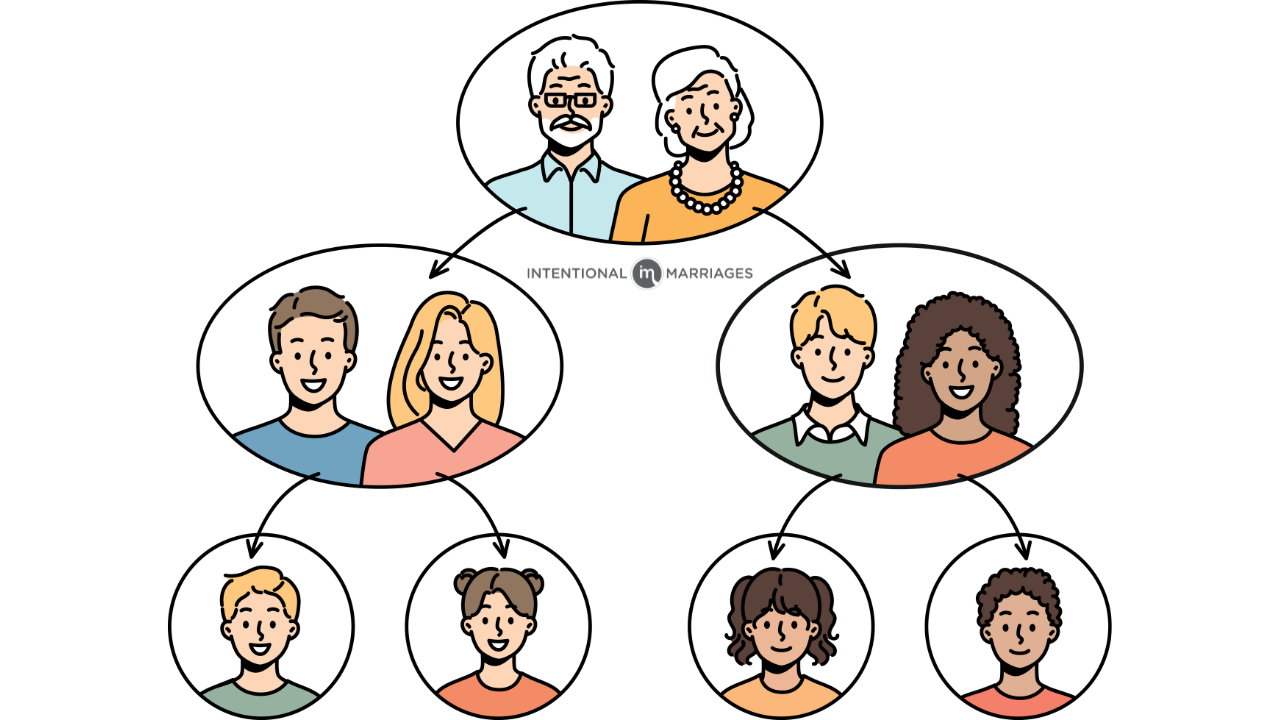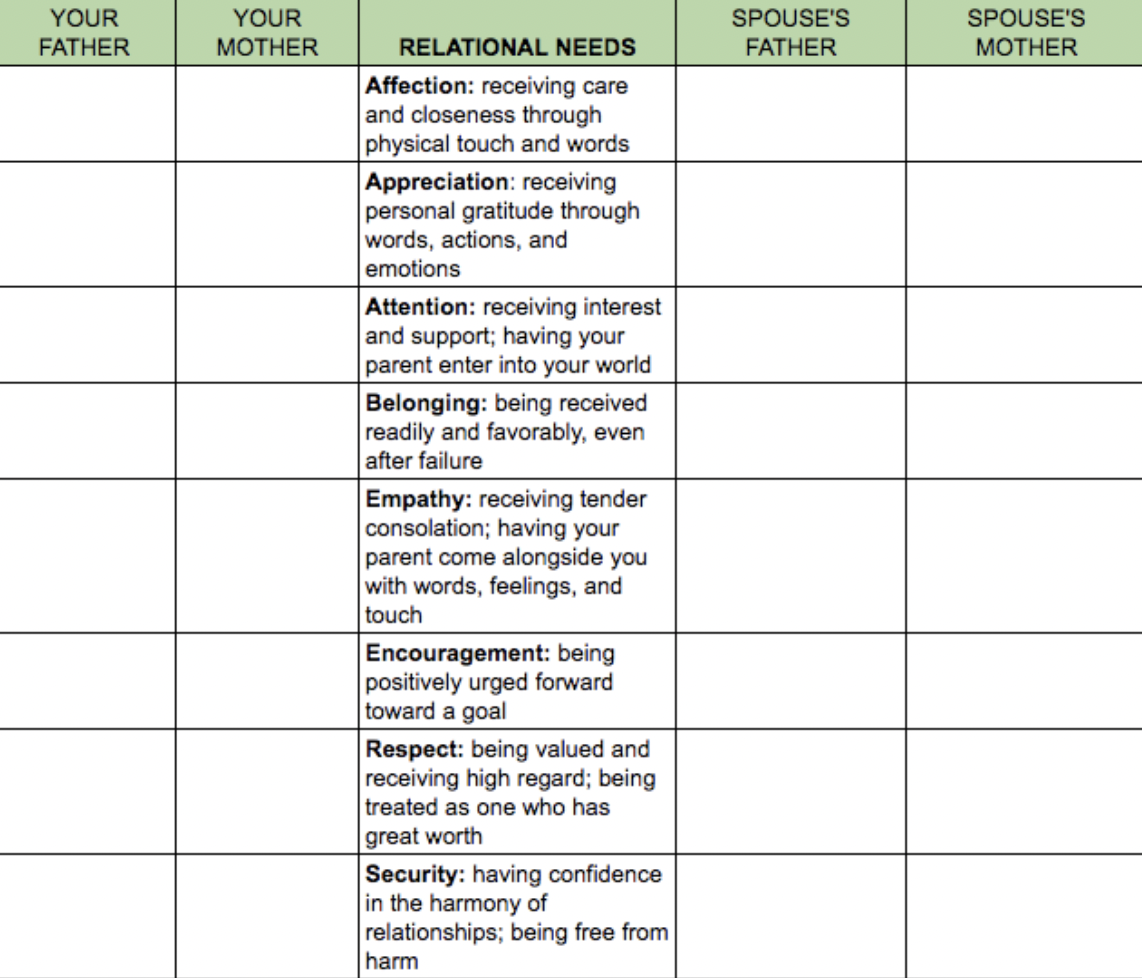Looking at Your Past
Aug 07, 2023
"Do as I say, not as I do!"
Do you ever catch yourself saying the same things to your kids your parents used to tell you? Didn't you promise yourself you would never react in the same manner or say the same things that made you eye roll back then? Funny how that works, isn't it? Well, our children will mimic our behaviors for better or for worse. Ideally, you use this form of modeling for good.
Even though we recognize on some level we have been formed and impacted by our childhood we tend to disconnect our adult behaviors from our upbringing. It took me years in counseling to connect the dots of my behavior today with my past.

Let's get a little personal...
For example, my Dad wanted to make sure I was self-sufficient. He didn't want me to lean on anyone so when I would ask him questions (lots of questions) his typical response would be "Look it up! Don't be so stupid."
I truly don't believe he put much weight on the word 'stupid' as I did but it stuck. As I watched my brother and sister skate through school with good grades and with less effort than I did, I started to believe on some level I wasn't smart. And it didn't help that I chose the Pre-Med path in college. I ended up with a B.S. in Biology and Chemistry but I didn't go off to medical school so I saw my college as a fail. (smh)
So when Russ corrects me or points out a different perspective, I'm not as open because immediately I believe I'm stupid for not thinking of it in the same way. This can cause friction with us pretty quickly when it was never Russ' intent to make me feel that way.
If you're not aware of your own assumptions, any of these things can become a source of conflict and confusion for you and your spouse. Maybe your family freely expressed emotions and your spouse's family didn't. Maybe your parents argued loudly and often, while your spouse's parents never fought in front of the kids. When you assume that your family's style of communication and conflict resolution were normal and the style is completely foreign to your spouse, you can come away confused about your spouse's behavior and how to respond to it.
Also, if your spouse behaves in a way that even subconsciously reminds you of something hurtful your parents did, you may find yourself reacting exactly the way you did as a kid - rebelling, retreating, or lashing out.
Source: Northpoint.org/Thrive Marriage Curriculum
Take a Closer Look
So are you aware of why and how you react?
We have found most folks, including ourselves, cannot connect those dots without a professional counselor. It's like being deep inside a bottle and not being able to read the label. The neat part about counseling is the level of compassion and understanding that takes place.
Sidenote: We also have met couples who resist the idea of a therapist but when a crisis occurs (not if but when) do you really want your conversation to start off, "Hi, my name is..." No, you want someone who already knows your history and tendencies and can jump right into helping you navigate your crisis.
For your benefit and your spouse's, you need to take a close look at your family background to determine how it affected you. You may feel like you're dishonoring your parents or opening old wounds. That's understandable. That's okay. But remember: almost every parent wants the best for his or her children. Most parents, good or bad, do the best they can. Even the best parents have things they wish they'd done differently.
Your goal is to look at the ways your parents did things and decide which things you need to leave behind, replacing them with the example of Jesus Christ. It's the only way to become the best spouse you can be.
To identify what's keeping you from having the best marriage possible, you will need to look at the wounds you received from parents, siblings, relatives, and childhood friends. It will be difficult...and worth it.
When you better understand your tendencies, when you can explain them to your spouse, when you can invite your spouse into the healing process, your marriage will thrive like never before. It's like having scar tissue removed: the surgery is messy and the recovery is painful, but your quality of life improves radically - and quickly. Ignoring past hurts doesn't make them go away. If you bury them for too long, your grow numb, limiting your capacity to love and be loved.
Source: Northpoint.org/Thrive Marriage Curriculum
Relational Needs
In the chart below, review the list of needs and ask yourself if both of your parents, only one, or neither met that need. If you were adopted, consider both your biological parents and stepparents, but do so separately in the margin. Focus on the years before you graduated from high school.

After this exercise, share with your spouse the needs that were left unmet during your childhood. You may not have even realized you were hoping these needs would be met by your spouse.
Did you uncover a deeper understanding of your spouse's relational needs?


